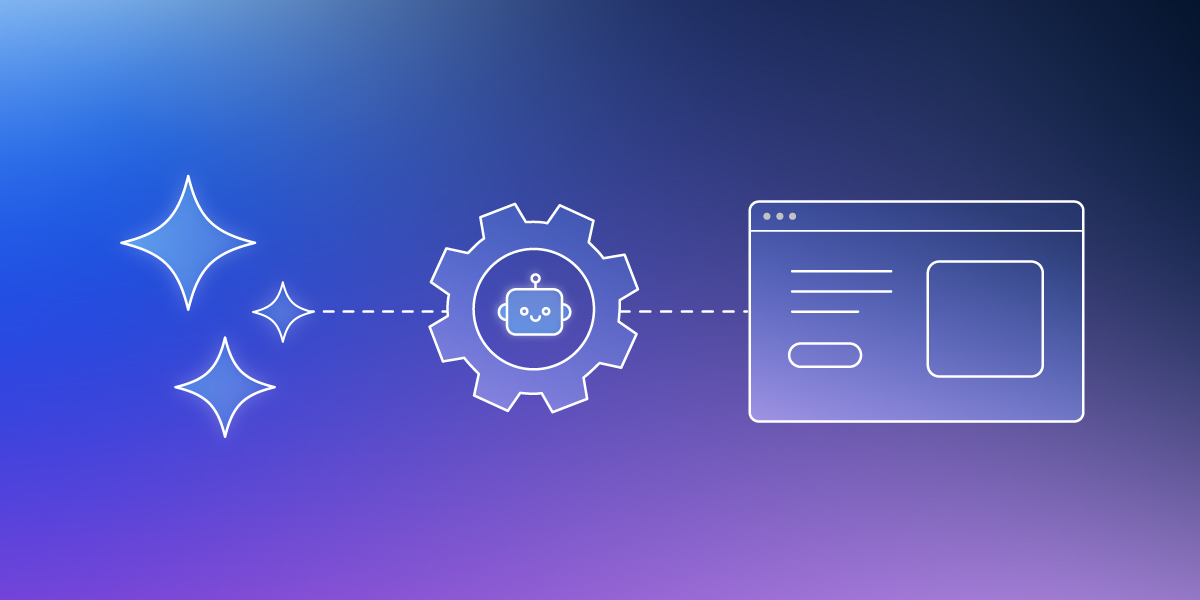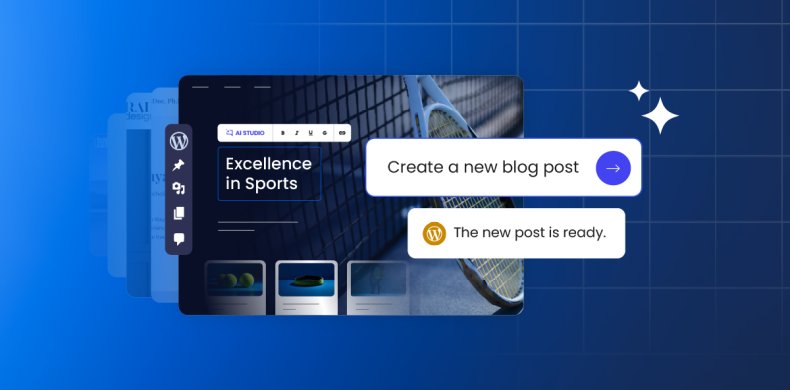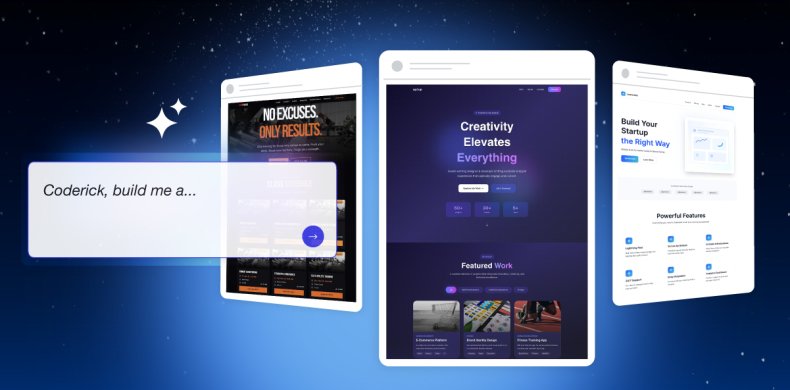The Pros and Cons of AI Bot Crawling & How SiteGround Helps

AI technology has been developing for decades, but it was only within the past few years that we began to truly feel its impact – affecting our daily lives from handling basic chores to solving and automating whole business processes.
When AI technology exploded 2-3 years ago, the tech world witnessed an unprecedented surge in automated crawling activity. AI companies were racing to collect as much web content as possible to train their large language models (LLMs), often without website owners’ knowledge or consent. This led to the rapid evolution of AI models, forging more usage and breaking changes in search behavior by diminishing the importance of traditional search engines and SEO practices to that of new generative engine optimization (GEO).
Understanding AI technology’s complex effects on client websites, we proactively balance mitigating potential risks while helping our customers embrace new opportunities. Let’s explore the downsides and upsides of AI bots crawling your site before diving to our actions to help you navigate this rapidly changing environment.
The Pros and Cons Of AI Bot Crawling
In our experience, technology is rarely all good and all bad – and AI is no exception. While AI algorithms and bot behavior have matured significantly, several key issues require careful consideration.
Lack of Privacy and Intellectual Property Regulation
AI bots are systematically crawling and using original content – blog posts, product descriptions, creative writing, proprietary information – without explicit permission. This content is then used to train LLMs with no attribution to the original creators. Imagine discovering that your carefully crafted articles, unique business insights, or creative work had been incorporated into an AI system that could then generate similar content, potentially competing with your original work while providing you with no recognition or compensation.
While major AI providers have become less aggressive in their crawling behavior and are trying to develop more respectful crawling practices, the problem is still very much open to debate and regulation, and it will surely take a few more years of work until we manage to resolve it.
Lack Of Transparency And Control
Unlike established search engines that provided clear guidelines, robots.txt compliance, and webmaster tools, early AI crawlers operated with little transparency. Website owners had no way to understand what content was being collected, how it would be used, or how to opt out of this data collection. This lack of control over your own digital assets is fundamentally problematic, adding to the more complex ethical dilemma along with the point above.
Admittedly, things are moving in the right direction, with AI companies implementing proper user agent identification, which helps in distinguishing between training crawlers and user-session crawlers.
Spike In Server Resource Consumption
AI bots operate with an intensity that is unlike traditional search engine crawlers. Where Google’s bot might visit your site periodically and respectfully, AI training bots would often make hundreds or even thousands of requests in rapid succession. This aggressive crawling pattern can impact server performance, leading to slower loading times for real visitors, and increased resource usage and costs. For businesses relying on their websites for sales, customer service, or lead generation, any performance impact translates directly into lost revenue.
Generative Search Is The New Must
As the LLMs are getting better and smarter, the search behavior of the users is changing. We are less frequently using standard search engines to collect information, and more frequently asking AI to gather and analyze the information for us. Consequently, online businesses and websites now look for ways to be listed in AI overviews and chat responses. And in order to be there, the website must be crawled for a start.
SiteGround’s Policy On AI Bot Crawling
In the early years of AI bots development, we witnessed first-hand how almost all of their traffic was for training purposes. It was often so aggressive that we had to kill the requests in order to not let them overload our servers. To protect our customers’ websites from unauthorized content harvesting while maintaining optimal server performance for legitimate visitors, we had to block the majority of aggressive AI crawlers.
Fast-forward a few years, we now observe a different situation. The profile of the AI crawlers has changed and we see much less training, and a lot more chat-initiated visits, which indicate that AI is checking your site for the purpose of a conversation with a legitimate user, potentially interested in your service. That is why we’ve changed our approach to AI crawler management. Instead of blocking the majority of AI crawlers, we’re now making a distinction between different types of AI traffic.
✅ Allowed: AI Chat Session Crawlers
AI crawlers that are used when real users interact with AI platforms like ChatGPT, Claude, Gemini, or else are allowed by default. This means when someone asks these AI assistants to visit or analyze your website, they’ll be able to access it successfully.
❌ Blocked: AI Training Bots
We block AI crawlers that are specifically designed to scrape content for AI model training purposes, protecting your intellectual property and original content from unauthorized use. Blocking these crawlers means your content will be protected from AI models being trained on it, but people should be able to use platforms such as ChatGPT, etc – and AI will be able to crawl your site when providing an answer. The full technical details on which specific AI crawlers are allowed by default and which you can enable on request is available in our Knowledge Base.
What This Means for You
Here are the immediate benefits of this policy:
- Your website is accessible when users ask AI platforms to visit or analyze it
- You have increased discoverability through AI-powered searches and recommendations
- Your visitors have a better experience when using AI tools to research your content
At the same time, we continue to ensure the following protection:
- Your content remains protected from unauthorized training data collection
- Your website’s performance is protected through continued blocking of aggressive crawlers
- Ongoing monitoring and rate limiting of all bot traffic
Looking Ahead
The digital landscape will keep evolving, and so will we. At SiteGround, we believe in empowering you to embrace technological progress while maintaining the security and performance standards your business depends on. As the relationship between AI technology and web content continues to evolve, what remains constant is SiteGround’s commitment to helping you navigate this landscape with both protection and flexibility.
Your success in this AI-driven future starts with having a website and hosting partner who understands both the opportunities and the risks—and knows how to help you capitalize on one while avoiding the other.




Comments ( 9 )
Elizabeth Olsen @ Rabattdigga.de
How should website owners balance the risks and benefits of AI bot crawling, and what role does SiteGround’s policy play in that?
Georgi Chavdarov Siteground Team
Thanks for the interesting question! A website owner should have a strategy that weighs the security and stability of the website against the visibility of the content for different crawlers. Our goal with the default server setup is to provide all of our customers with a stable setup, allowing real-time chat sessions to reach the website, while blocking aggressive training bots to safeguard your intellectual property. Still, we give the access and the freedom to each of our customers, so that each of our partners can choose which crawlers to be additionally blocked. You can check the list of allowed bots in the guide below: https://www.siteground.com/kb/allowed-ai-crawlers and if further adjustments are needed, do not hesitate to reach our team to further help with the custom setup.
Renee Michelle
Excellent article Daniel, thank you. Can I OPT OUT of ALL AI harvesting of my site data? I have major privacy and environmental concerns, and I know many others do as well. Thank you!
Georgi Chavdarov Siteground Team
We are happy to hear that you liked the details shared in the article! Regarding your inquiry, let's first start with the list of allowed crawlers, which can be found in the article below: https://www.siteground.com/kb/allowed-ai-crawlers We understand that each unique project requires custom set up. This is why, we want to give full control over the setup to our customers. Each account owner can manually block specific crawler with a .htaccess rule, such example can be checked below: https://www.siteground.com/kb/block-ai-crawlers/ By adding few separate .htaccess rules, you can block all crawlers for the web project of yours. Please give it a try and if any assistance is required, do not hesitate to reach our team via the Client Area > Help Center > Other > SiteGround AI Crawlers Setup. Our team is always available to help further.
M C Ertem
Aww come on SG... You want me to keep track of all known crawlers at https://www.siteground.com/kb/allowed-ai-crawlers and update my .htaccess manually every day, every week???? Just create a setting for the hosting account that automatically updates the .htaccess with ALL crawlers that Siteground becomes aware of. Or just create a global crawlerblock.rules file that has a bunch of RewriteEngine On RewriteCond %{HTTP_USER_AGENT} XXXXX-YYYYY [NC] RewriteRule .* – [F,L] so I can crontab half hourly to append it to the end of my .htaccess . (I already have a cron job that maintains my .htaccess file) Don't these crawlers honor robots.txt in the first place. (See bottom of https://ertem.com/ and https://ertem.com/robots.txt)
Georgi Chavdarov Siteground Team
We completely understand that manually updating your .htaccess file for every new crawler can be tedious.We provide full control over this setup, so that it can be adjusted for each unique project. You're already on the right track with your existing cron setup, as this will secure your website from unwanted visits. If further assistance is required, our team is always available via the Client Area > '?' section > View Help Center > Contact Us > Other > SiteGround AI crawler setup. Our colleagues will review the current setup and we will be happy to help to block the crawlers/bots from your website. We’ll also pass your suggestion along to the product team—automated crawler management is a great idea worth exploring.
Lucas Silva
This is pretty cool.
Sean Smith
In your opinion If you run a website, how would you balance openness to AI crawlers (for exposure) vs. protection of your content and resources?
Georgi Chavdarov Siteground Team
Our goal has always been to keep your website open to user-driven AI searches while blocking aggressive AI training bots, and SiteGround’s default setup achieves this balance. For added control, you can easily tweak settings like your robots.txt or .htaccess files or terms of use to further protect your content. We suggest checking your website’s access logs to spot any unusual bot activity, then customizing restrictions as needed to keep your site secure and visible.
Thanks! Your comment will be held for moderation and will be shortly published, if it is related to this blog article. Comments for support inquiries or issues will not be published, if you have such please report it through our official channels of communication.
Leave a comment
Thanks! Your comment will be held for moderation and will be shortly published, if it is related to this blog article. Comments for support inquiries or issues will not be published, if you have such please report it through our official channels of communication.